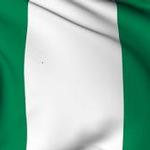Who Rules Nigeria?
Nigeria has experienced military coups, a civil war and very poor economic development, and its population is more impoverished today than at independence. Behind this lies the “oil curse”. The ruling elite has captured the rents generated from oil for personal enrichment and power purposes. Nigeria’s elite formation has three distinct characteristics. It is based on a fusion of elites, with the military dominating. It is consolidated through power diversification (with the conversion of political power into economic power as the most important), and it is enriched through economic extraction (where the usurpation of the country’s oil wealth is pivotal).
The excessive centralisation of power, authoritarianism, and the pervasiveness of patronage and rent-seeking cultures have developed a political or ruling class. Oil resources have given this class the incentive to control the state apparatus (and thus the income), and the means to retain control of the state. The main beneficiaries, and thus the main constituent components of the oil-rich elite, are the “big men” (the inner circle of the ruling elite), the military and state governors. Since formal democratisation at the turn of the century, various reforms have been half-heartedly attempted. Despite the nomination of economic reformers to prominent positions, the vested interests of the political class have not been challenged. The current president, Goodluck Jonathan, has nominated a few reformers, but his use of power politics and patronage (in particular to win the 2011 elections) demonstrates that his government is not a particularly reformist administration.


